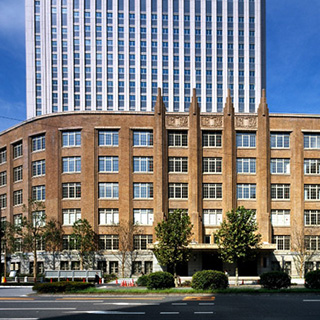○ Modern school education in Japan began with the Education System that was promulgated in 1872 and will mark its 150th anniversary in 2022. After the promulgation of the Education System, the school education system for national, public, and private schools developed rapidly and created the foundation for the subsequent development of Japan, including increases in the literacy rate in association with the spread of compulsory education, implementation of higher education in the native language in association with the establishment of upper secondary schools under the former education system and imperial universities, etc., the enhancement of specialized education by establishing a professional training college system, etc.
○ In 1947, the Basic Act on Education came into force, which established the educational foundation for Japan after World War II. Under the philosophy of this Act, various new education systems were established, the educational standards of citizens dramatically increased, and it became a driving power for the remarkable development of Japan after World War II.
○ In 2006, where the circumstances surrounding education had drastically changed, such as the advancement of science and technology and a declining birthrate and aging population, etc., the amended Basic Act on Education was established to define an education philosophy for a new era. Then, based on the objectives and goals of said amended Act, the first and second Basic Plans for the Promotion of Education were established, the entire society conducted educational reform, and thereby education in Japan steadily accumulated outcomes.
○ Today, Japan is facing a period in which people live 100 years, and technological innovations, such as the use of artificial intelligence (AI) and big data, etc., are rapidly advancing towards achievement of a Super Smart Society (Society 5.0). In order for all people to overcome these big changes in society, to acquire the abilities necessary to live rich lives, and to take active roles in society, the role of education is massive.
○ We are at a major transition point where continuing to provide conventional education is not enough to live an enriched life in turbulent times and foster diversified people who can develop the future. Everyone can achieve the sensitivity and creativity unique to human beings and maximize their possibilities. Everyone can maximize opportunities when they use the abilities that they have acquired, set goals, and strive to achieve their dreams. Implementation of reforms to achieve these goals is required now.
○ Under the aforementioned idea, this Plan defines the future model of educational policies based on the assumption of changes in society in 2030 and after, while taking over the philosophy to achieve establishment of a lifelong learning society in order to achieve three directions, Independence, Collaboration, and Creativity, that were set under the Second Basic Plan for the Promotion of Education (hereinafter referred to as the “Second Basic Plan”). In addition, this Plan leads to the establishment of more effective and efficient educational measures based on specialized and multilateral analysis and verification of the effects of various educational measures; it shares an understanding of the effects and necessity of educational measures broadly among citizens; and it indicates strategies for educational reform to be implemented by the entire society. The national government will conduct future educational policies based on this Plan in consideration of proposals of the Education Rebuilding Implementation Council and the basic policies of other fields related to education. It is expected that local governments will take appropriate actions based fully on the objectives of provisions of the amended Basic Act on Education.
(Education Policy Bureau Policy Division)




